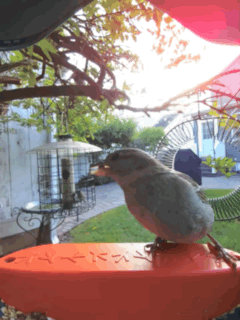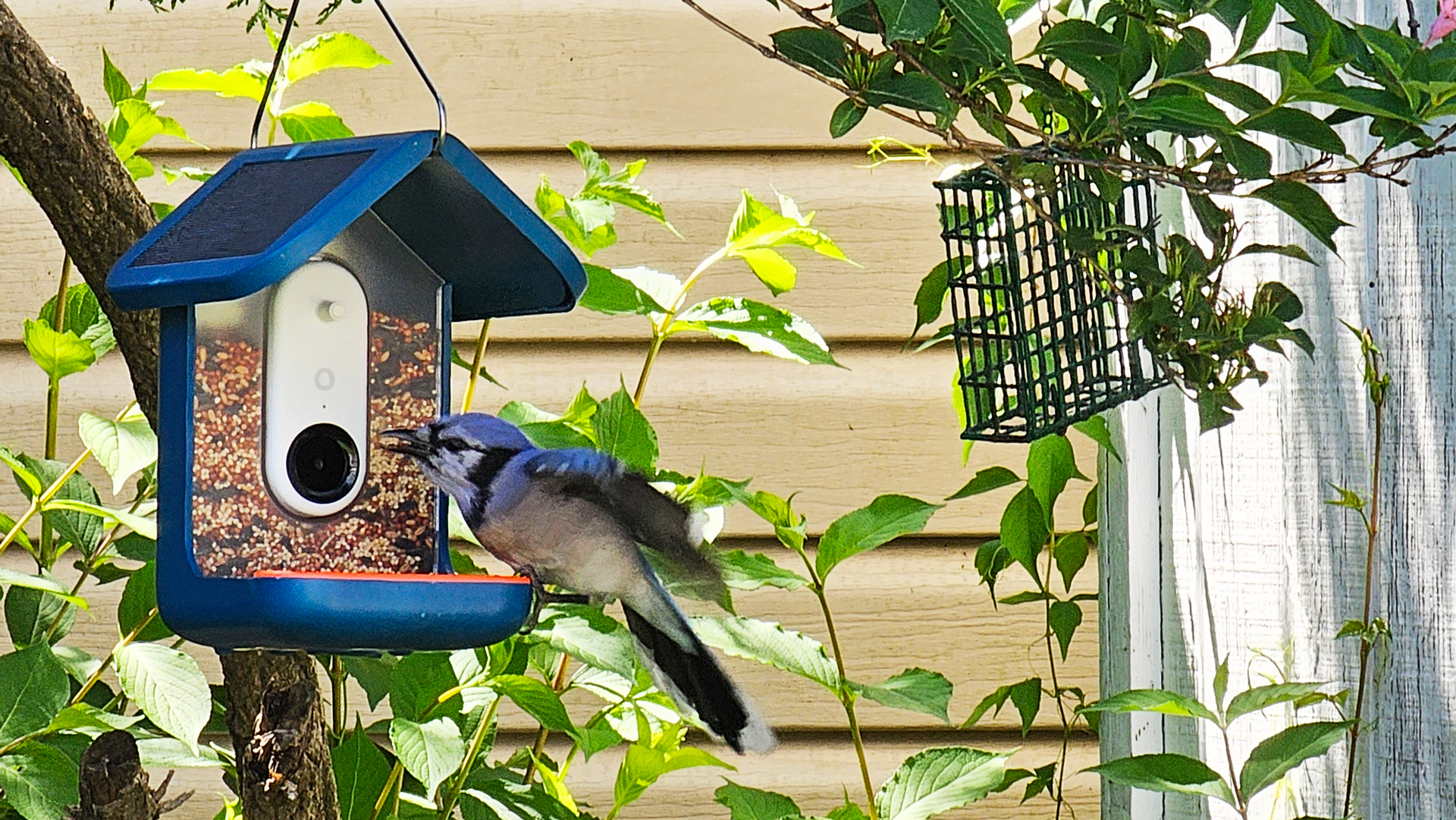
The squirrel parked itself in my bird feeder, greedily consuming every seed. I wished, not for the first or last time, that I could shout at the furry pet to get him off the perch and give my beloved feathered friends a chance at a snack.
I ran out my back door and shooed the rodent who launched himself off my Bird Buddy and sent most of the seeds flying out onto the ground.
Aside from the frustration that Bird Buddy, a smart bird feeder with a built-in camera that you can hang from a tree or screw into a perch, does not include a tiny speaker that could carry my voice from the app to right where the squirrel is staring into the camera, I love this gadget.
I gave up fighting and now assume that 70% of all my Bird Buddy feed will go to Mr. Squirrel
I've been bird-watching, or "birding" as we like to call it, for seven years. It started when I lost my job and returned to one of my passions: photography. I have a nice long 200mm lens and a solid Sony Alpha a6000 APS-C camera. Over time, I've become aware of not only the different looks of multiple bird species, but their calls. When I hear something special like the staccato of a woodpecker pecking or the bizarre call of green parrots that once showed up in my backyard, I cock my head and grow still, like a dog hearing its master.
This article is part of TechRadar's Smart Home Week 2024, where we're giving you all the latest news, tips and tricks to help you make the smart home of your dreams.
The goal of my bird photography is to get close. I want to see bird eyes and the fine fibers of the multi-colored feathers. I have considered a 600mm lens, but keep balking at the price.
To be clear, getting close to birds without a long lens is difficult. When I notice an unusual bird on my feeder, I carefully open the back door and try to sneak out and get a good shot. However, birds have great sight and hearing; the minute they see the slightest movement, they're off.
If you follow Bird TikTok, you may have noticed people disguising themselves and constructing baseball caps all but made of bird seeds. Then they sit motionless on a chair and wait for a bird, which usually arrives. I have considered these extreme measures for getting close to birds, but fortunately there's a better way.
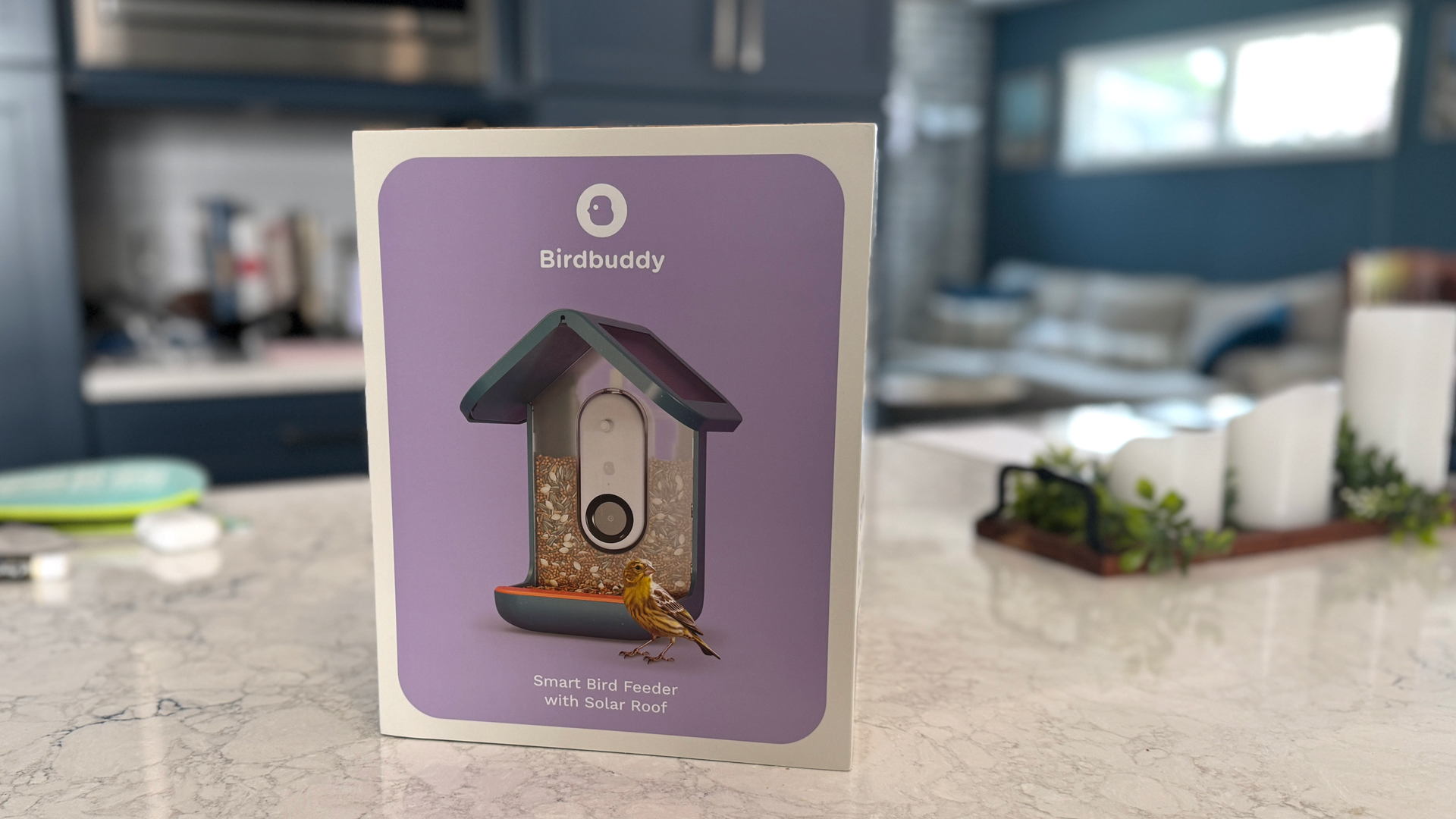
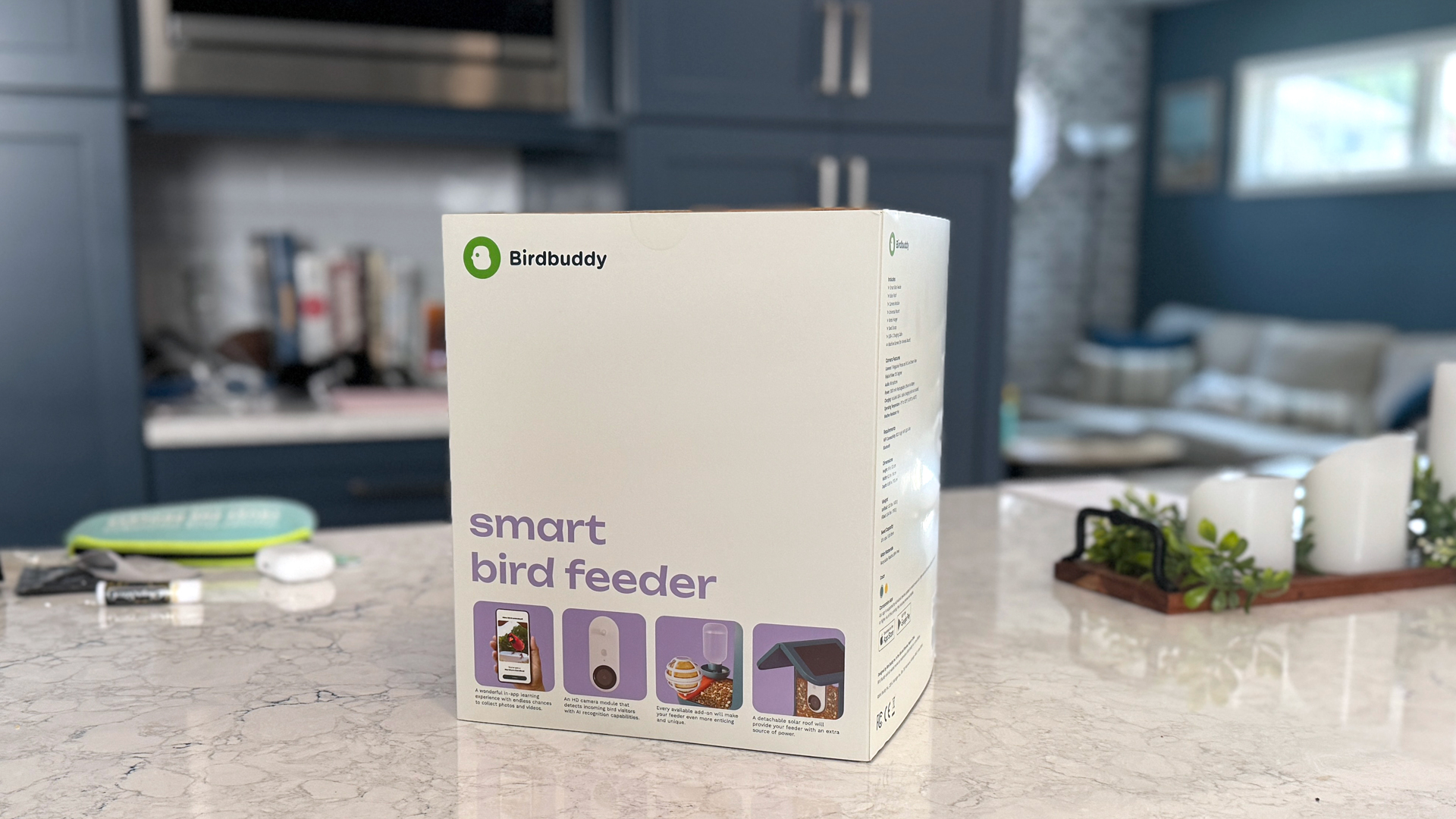
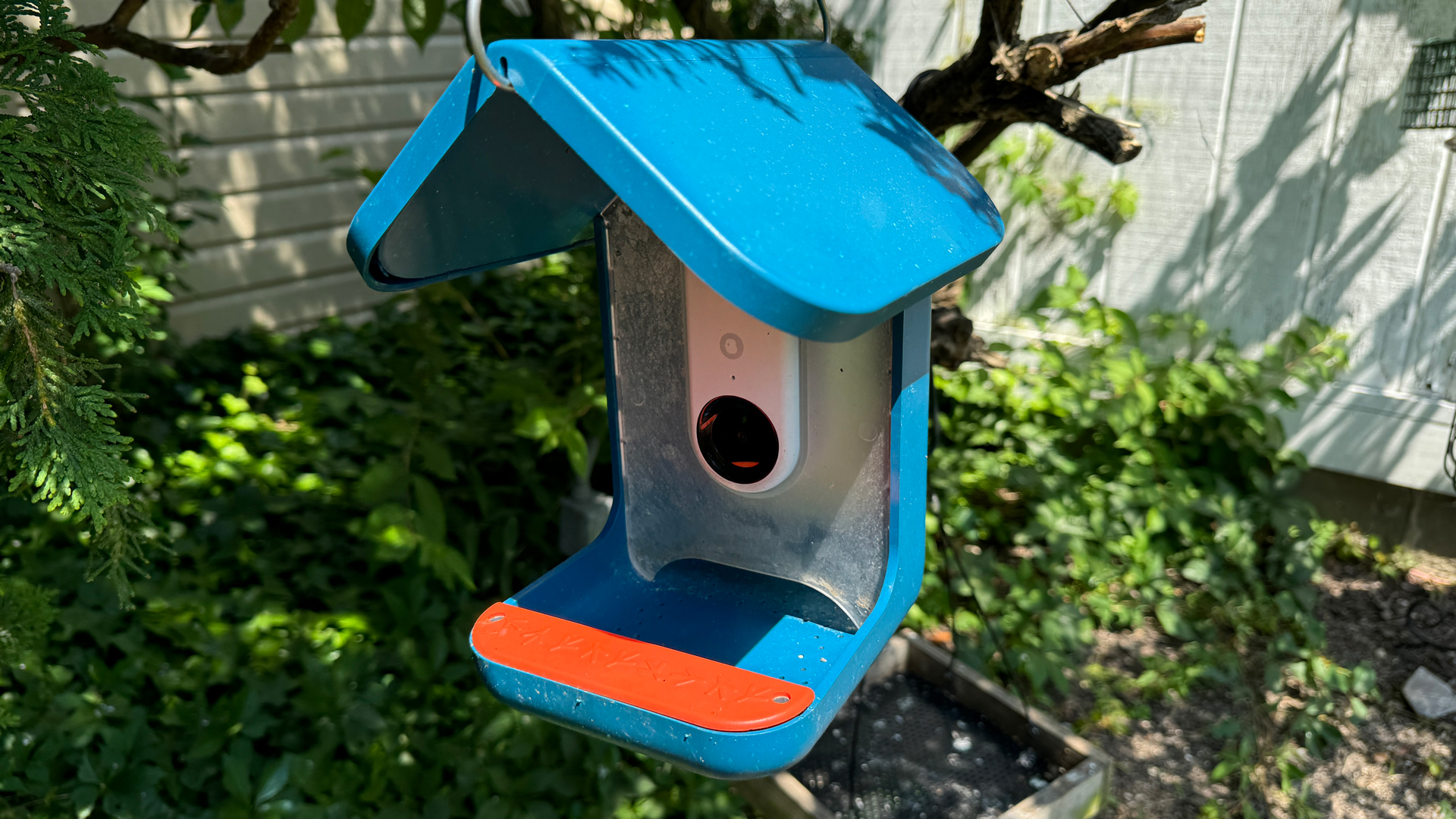
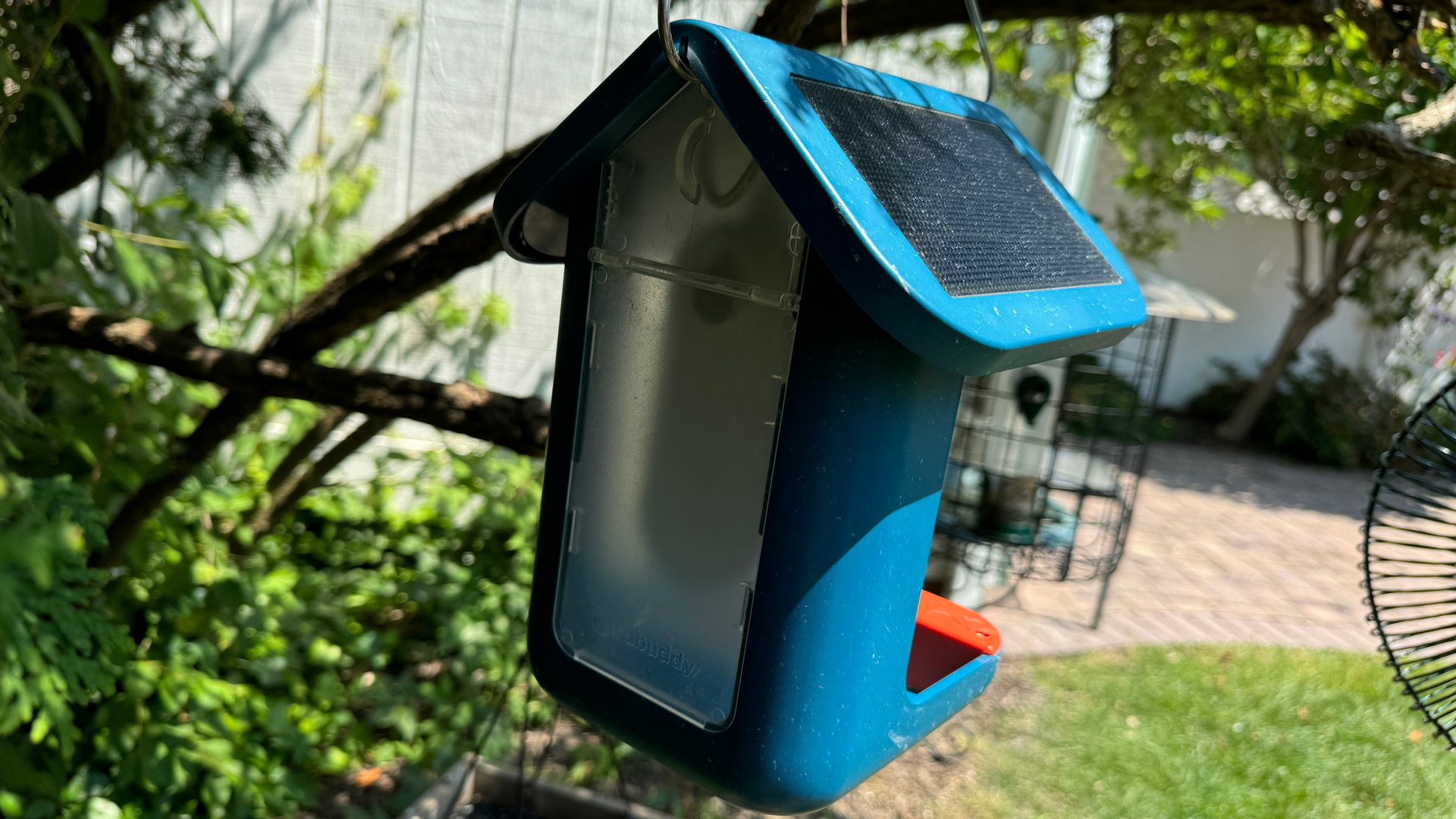
Bird Buddy first launched on Kickstarter in 2020 with a simple, yet brilliant idea: put an app-connected camera inside a bird feeder. Birds will flock to the feed and, if all goes well, they'll do it all in front of a wide-angle camera right in front of their beaked faces.
I've wanted one for years but worried that spending over $200 for a bird feeder was excessive. Meanwhile, I spend at least that much each year on birdseed.
Luckily for me, I didn't have to make the call; my family bought me a Bird Buddy for my birthday.
There was another reason I never bought the gadget. The basic Bird Buddy smart bird feeder ($239/£239) has a rechargeable camera that you must occasionally pull from the feeder to charge. I worried I'd forget and soon have just a basic bird feeder hanging in my bird sanctuary. Fortunately, my family paid $299 (£299) for Bird Buddy with the solar roof. Problem solved! Sort of – but more on that later.
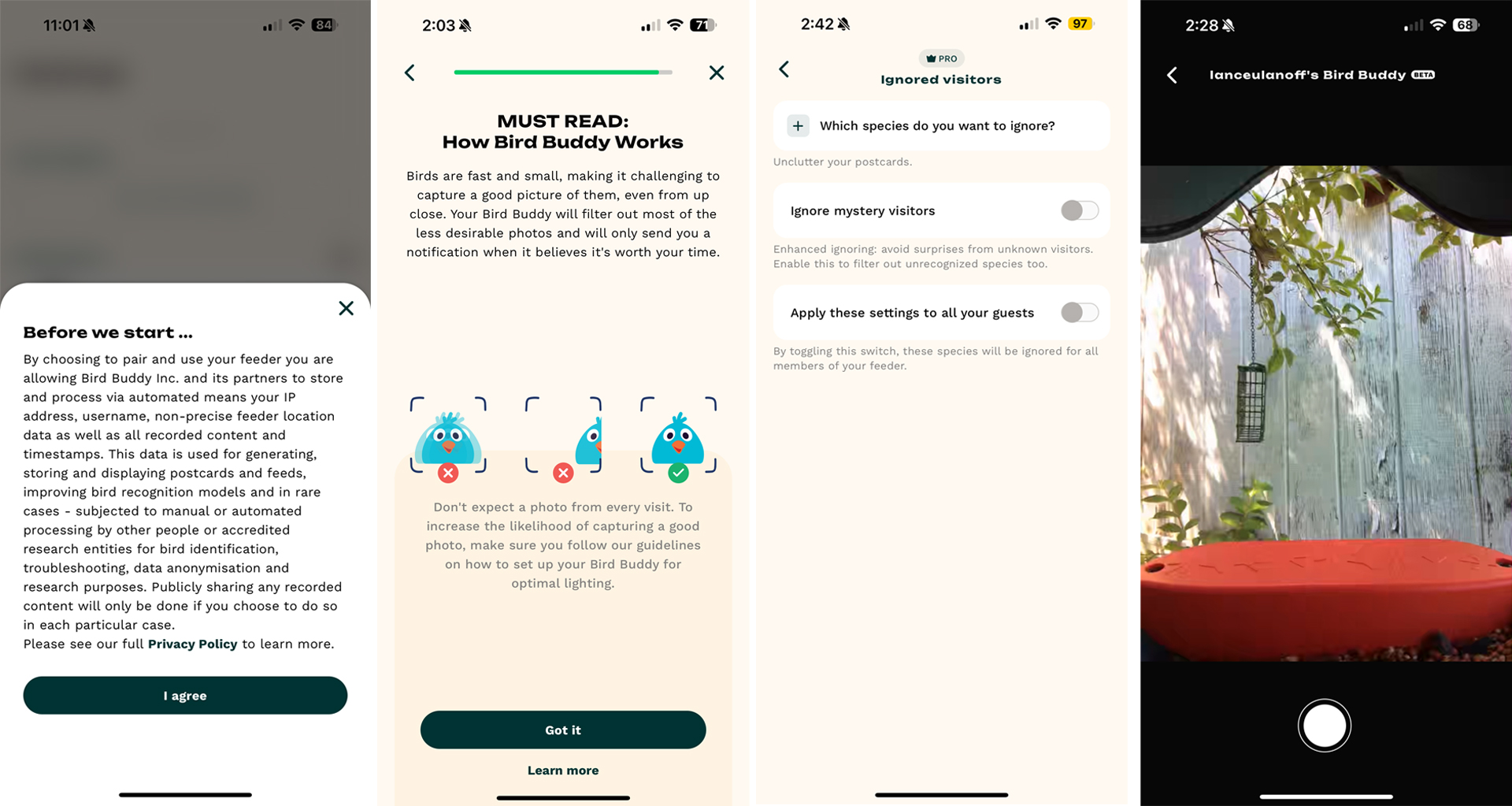
Early bird
Setting up a Bird Buddy is easy. There's almost no assembly, aside from putting on the solar roof, placing the camera inside the feeder housing, and plugging the camera into the solar-panel roof. Before that, there was a little bit of app setup that included ensuring the 5MP camera was fully charged and connected to my phone and WiFi network.
Initially, I thought the camera wasn't charging. I kept looking for the power/connectivity light, which appeared to be a small hole in the camera body. It took me a few minutes to realize this was in fact the microphone and the light is hidden under the body and it's really hard to spot it. I hope future BirdBuddy smart feeders move that light to the surface of the camera chassis.
With the camera charged and connected, I put the feeder together and positioned the included wire hanger in place (we could also order equipment for screwing the smart feeder into a post). While a strong 802.11 b/g/n WiFi connection (only 2.4Ghz) is critical for regular avian updates from the smart bird feeder, I didn't hesitate to put it near my other feeders. I was confident that, thanks to the Eero WiFi mesh network extender on one of my back windows, I have ample WiFi coverage throughout my small backyard.
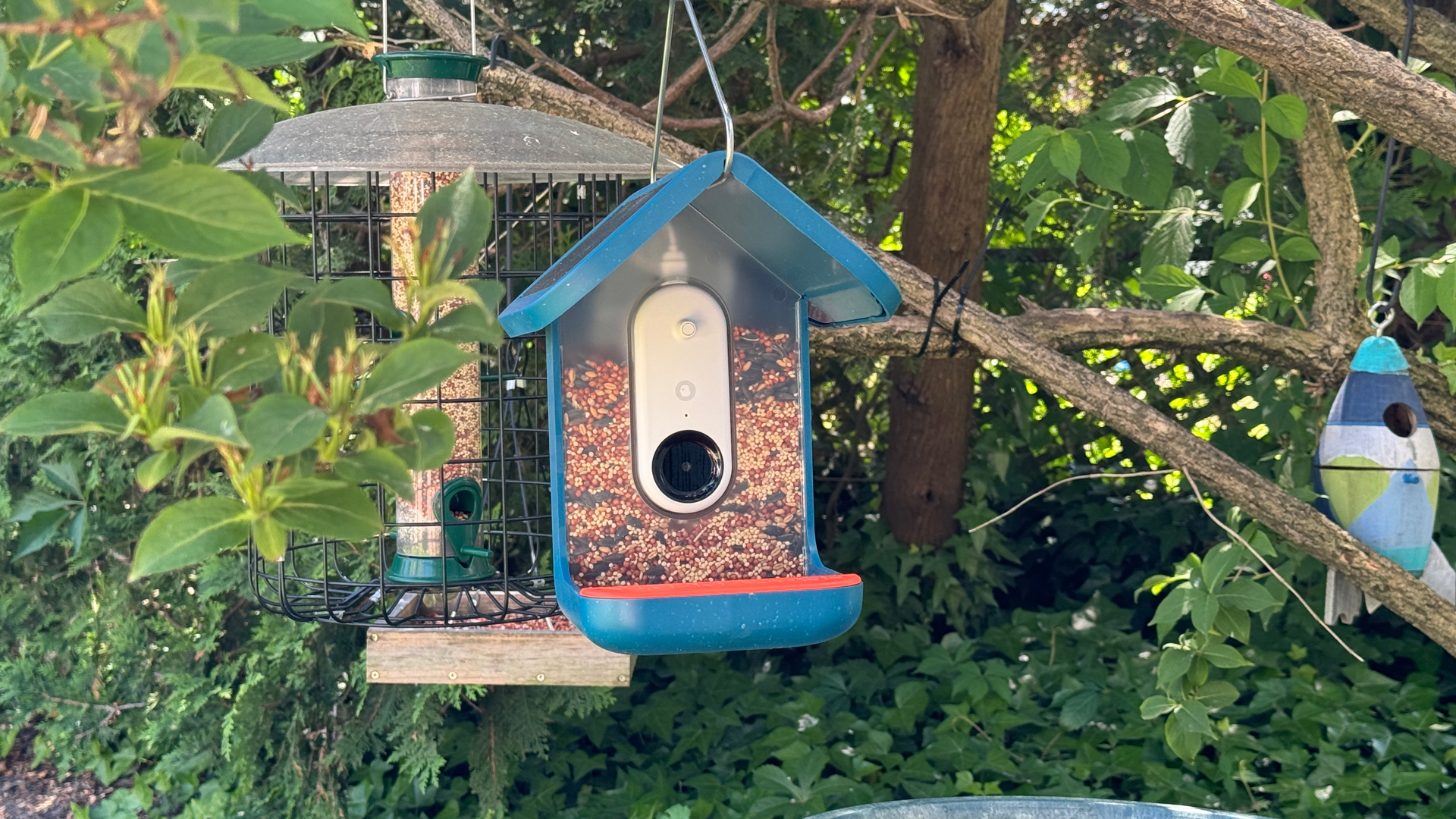
To fill Bird Buddy with feed, I opened a small panel on the back and used the included feed cup to pour in the seed. The only way to do this is to tilt the feeder forward. This causes some seed to slide out the front but not so much that it's a problem. It takes approximately two cup-fulls to fill Bird Buddy. This is probably half the seed I can fit in my regular feeder.
It's normal for birds to ignore new feeders for a day or longer (it can take weeks). It took a day for the birds to find my smart feeder. Soon I got my first alert. It was a Blue Jay who was almost too big for the little feeder. Through the live video feed, I could see him (or her) struggle for a perch. Eventually, he gave up.
Bird Buddy, by the way, can auto-identify bird species, though, if it doesn't have a clear or full view, it can guess wrong.
The images and videos it grabs are called postcards that you can download, share, keep private, or let expire, as your memories of those bird visitors fly away.
Even though this is just a 5MP, 120-degree FOV camera, the birds are usually just centimeters away from the lens so the images are clear, even the videos look pretty sharp, though the frame rate seems a bit low.
The videos include audio, but you can only hear it if you download the videos. That's annoying.
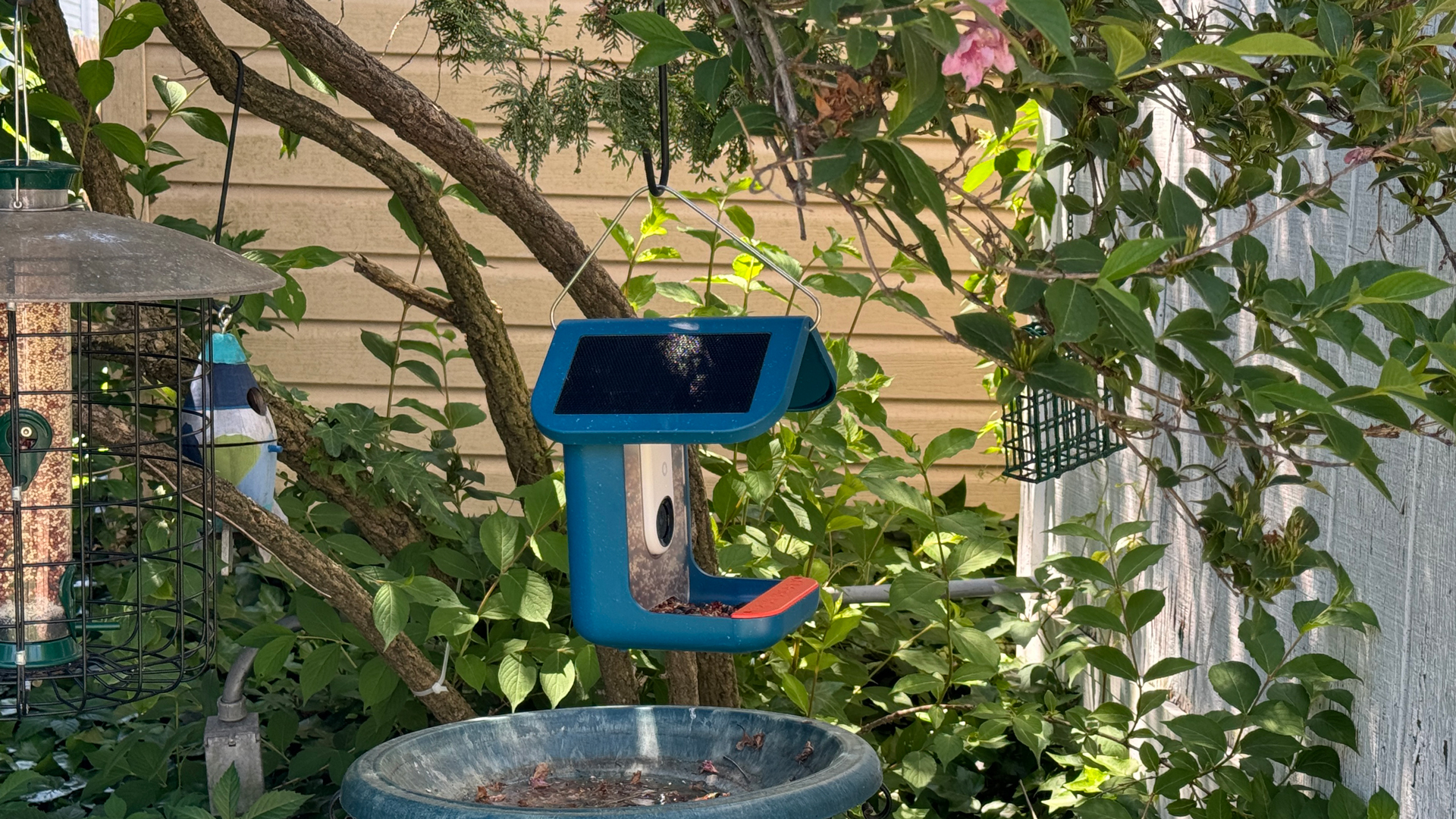
The worm
More than once, I wanted to zoom in on the live feed, but there's no way to do that. I also got frequent warnings that constant live-streaming can drain the battery.
Speaking of battery, I struggled for weeks to find the right position and spot to get the necessary solar charge. At one point my Bird Buddy reported just 8% battery life. I pulled it out of the tree so it was fully in the sun and let it get a full charge. After much trial and error, I found a spot that kept the solar panel (which is only on one side of the roof) pointed at the sun for much of the day and the smart bird feeder charge over 80%.
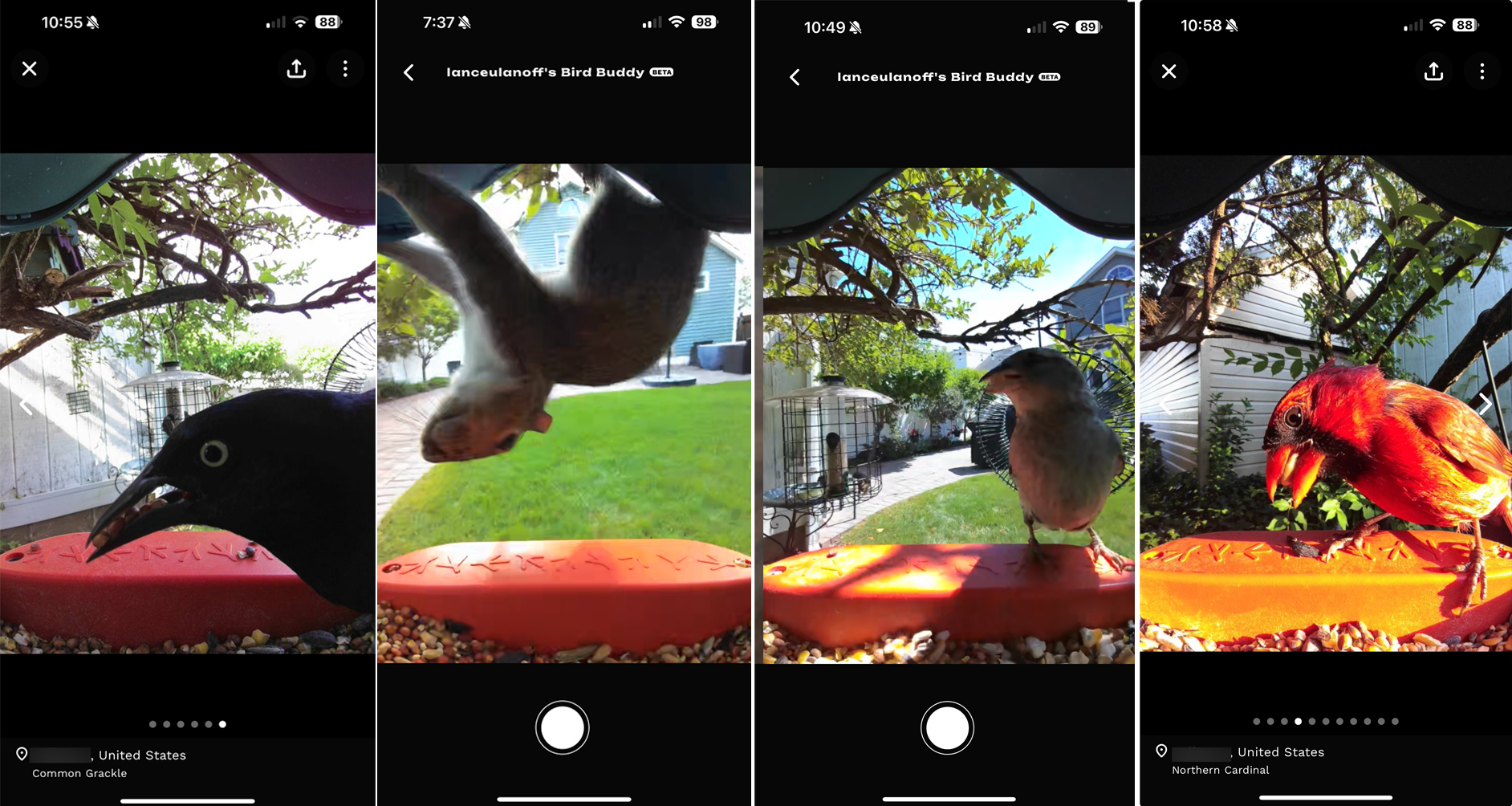
Let's feed!
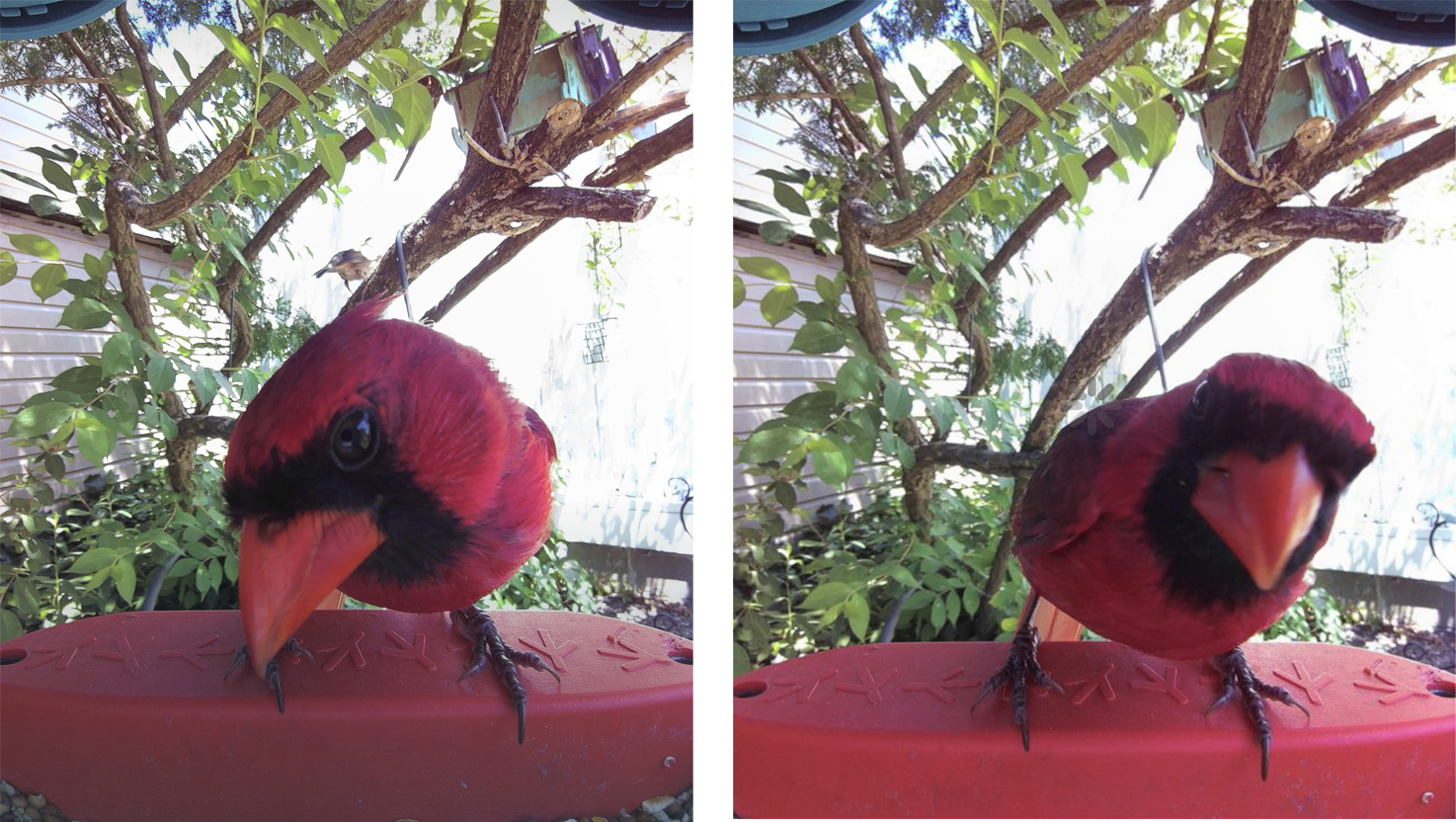
Bird Buddy learns about the smart feeder visitors and will deliver alerts about when during the day you might see one species or another (you can even tell it to ignore some common species). It will also organize bird species into collections, including "Mystery Visitors," which are birds it can't identify.
Eventually, I saw three species of sparrow, Northern Cardinals (male – the pretty red ones – and female), a House Finch, Blue Jays, Common Grackles, Mourning Doves, and squirrels...oh so many squirrels.
Here's the routine: I fill Bird Buddy and within a few minutes, a squirrel parks himself in it and feeds until I run outside and yell at him. He then jumps and seeds go flying. This is a fairly common problem in the Bird Buddy community and there is no good solution.
My regular feeder has a cage around it for this express reason. Squirrels can't get it. There are no cages for Bird Buddy. I've also tried spicing the feed. Birds have no heat receptors, but squirrels do and don't like spice. Guess what? My squirrels have developed a taste for the spicier things in life.
For what it's worth, I gave up fighting and now assume that 70% of all my Bird Buddy feed will go to Mr. Squirrel. I hope future Bird Buddy's include a speaker or even a tiny haptic motor that delivers a little harmless, jolt-like shake to the critters.
I need more
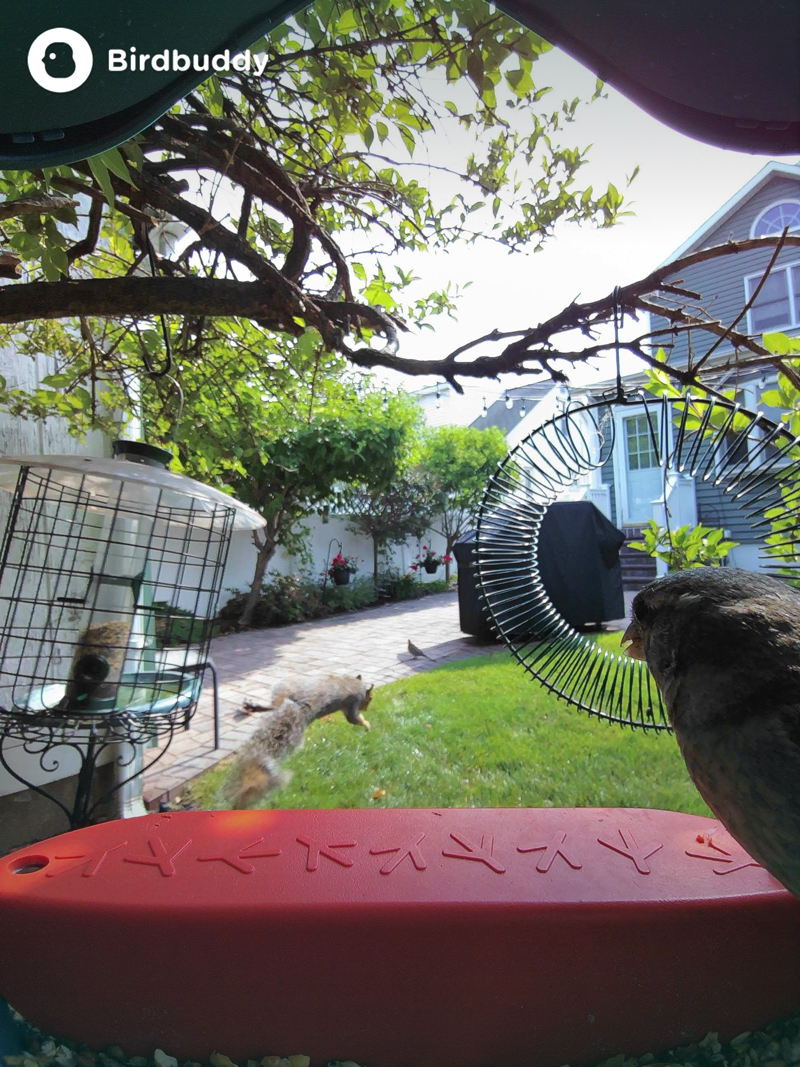
Despite these little glitches, I love my Biurdbuddy. It's a single-purpose smart home gadget that does what it promises with minimal fuss. It's willing to tell me as much or as little about my feathered visitors as I want. I can share the exciting ("Look, a squirrel diving off the Bird Buddy!") and entertaining photos and videos I get with the community or keep them to myself. I can also watch other people's Bird Buddys, if they choose to share their feeds. They often appear to live in more exotic locations and have a wider variety of birds.
My new goal is to buy another Bird Buddy and put it in a different location for even more expansive bird watching. In the meantime, my first Birdbuddy has brought me closer to my bird buddies than I ever thought possible.
As I write this, I have my iPhone 15 Pro propped up next to my MacBook Air, watching the live feed of a House Sparrow flying to the Bird Buddy, snapping up some seed, and then flying away as another blood floats in. It's fun and relaxing, not something I can say about most smart home technology.
